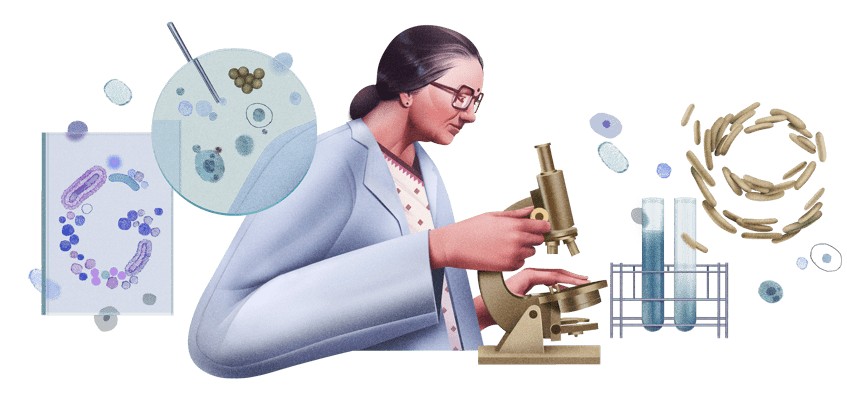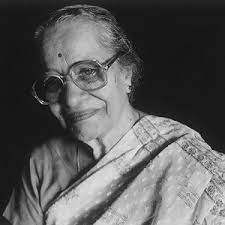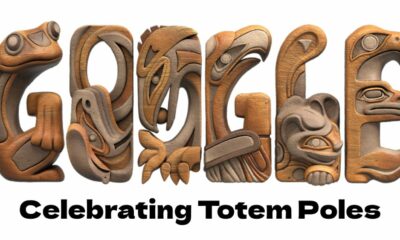Lifestyle
Interesting facts about Indian biomedical researcher Dr. Kamal Ranadive


Search engine giant Google celebrates the 104th birthday of Indian biomedical researcher Dr. Kamal Randive (née Kamal Jayasing Ranadive), who is known for her research in cancer about the links between cancers and viruses, on November 8, 2021. Google Doodle was represented by India-based guest artist Ibrahim Rayintakath.
Here is a look at the life and work of Dr. Kamal Ranadive.
Personal
- Birth name: Kamal Jayasing Ranadive
- Birthdate: 8 November 1917
- Birthplace: Pune, Bombay presidency, British India
- Died on: 11 April 2001 (aged 83)
- Father name: Dinesh Dattatreya Samarath
- Mother name: Shantabai Dinkar Samarth
- Spouse(s): Jayasing Trimbak Ranadive
- Nationality: Indian
- Education:
- H.H.C.P. High School, Huzurpaga
- Fergusson College, Pune
- Agriculture College, Pune
- University of Bombay
- Known for: Pioneering cancer research
- Notable award: Padma Bhushan
25 Interesting facts about Dr. Kamal Ranadive
- Dr. Kamal Ranadive was a founder member of the Indian Women Scientists’ Association (IWSA). In 1973, Dr. Ranadive and 11 partners established the Indian Women Scientists’ Association (IWSA) to help women in scientific fields.
- During the 1960s, Kamal Ranadive set up India’s first tissue culture research lab at the Indian Cancer Research Centre in Mumbai.
- Kamal Ranadive was born in Pune on 08 November 1917. Her parents were Dinesh Dattatreya Samarath and Shantabai Dinkar Samarth. Her father was a biologist who taught in the Fergusson College, Pune.
- Kamal was a bright student. She made the school at the Huzurpaga: the H.H.C.P. Secondary School.
- Kamal Ranadive obtained her Bachelor of Science (B.Sc) degree with distinction in 1934. She then, at that point, moved to the Agriculture College at Pune where she did her master’s degree (M.Sc.) in 1943 with cytogenetics of annocacae as the special subject.
- She then, at that point, married J. T. Ranadive, a mathematician on 13 May 1939 and moved to Bombay. They had a son, named Anil Jaysingh.
- In Bombay (presently known as Mumbai), Kamal Ranadive worked at the Tata Memorial Hospital. Her husband, Ranadive, was extraordinary assistance in her postgraduate studies in Cytology; this subject had been picked by her father.
- Kamal Ranadive additionally worked for her doctoral degree (Doctor of Philosophy) at Bombay University. Her guide was Dr. V. R. Khanolkar, a pathologist of notoriety and the founder of the Indian Cancer Research Centre (ICRC).
- After Kamal Ranadive received her Ph.D., from the University of Bombay in 1949, she was urged by Khanolkar to look for a fellowship in any American University.
- Dr. Kamal Ranadive got a postdoctoral research fellowship to work on tissue culture techniques and work with George Gey (renowned for his innovation laboratory HeLa cell line) in his lab at Johns Hopkins University in Baltimore. She is identified with Dhruva G.
- Kamal, on her re-visitation of India, rejoined ICRC and began her professional career as a Senior Research Officer. She was instrumental in establishing the Experimental Biology Laboratory and Tissue Culture Laboratory in Bombay.
- From 1966 to 1970, Dr. Kamal Ranadive had assumed the mantle of the Director of the Indian Cancer Research Centre in an acting capacity.
- In the mid-1960s, Dr. Kamal Ranadive alongside her assistants (whom she had enlisted into ICRC) in the fields of biology and chemistry, created tissue culture media and related reagents. She was likewise responsible for setting up new research units in Carcinogenesis, Cell biology, and Immunology.
- Dr. Kamal Ranadive’s career accomplishments include research on the pathophysiology of cancer through the medium of animals which prompted a further appreciation of causes of diseases like leukemia, breast cancer, and Esophageal cancer.
- At the point when Dr. Kamal Ranadive was working for Tata Memorial Cancer Hospital in Bombay (which later became Cancer Research Centre) in the department of pathology, she investigated the research studies on the “Comparative morphology of normal mammary glands of four strains of mice varying in their susceptibility to breast cancer”.
- In February 1945, she investigated the studies of cancer of the breast that had drawn special consideration. She attempted to correlate the course of the disease with heredity, child-bearing, histological structure, and other factors.
- Dr. Kamal Ranadive additionally gave advice to women in the rural villages close to Rajpur and Ahmednagar on health and medical care through government-sponsored projects under the aegis of the Indian Women Association.
- Kamal was awarded the Padma Bhusan (the third highest civilian award) for Medicine, in 1982.
- Dr. Kamal Ranadive was awarded the first Silver Jubilee Research Award in 1964, of the Medical Council of India. This award incorporated a gold medal and a cash award of ₹ 15,000.
- She was additionally awarded the G. J. Watumull Foundation Prize for 1964 in micro-biology.
- Dr. Kamal Ranadive was an Emeritus Medical Scientist of the Indian Council of Medical Research (ICMR).
- In the wake of retiring in 1989, Dr. Ranadive worked in rural communities in Maharashtra, training women as healthcare workers and giving health and nutrition education.
- Kamal published in excess of 200 scientific research papers on cancer and leprosy.
- Dr. Kamal Ranadive’s contribution to health justice and education stays influential to her students who work as researchers today.
- On November 8, 2021, Google featured a Doodle on its homepage for celebrating Dr. Kamal Ranadive’s 104th Birthday.
-

 Sports4 weeks ago
Sports4 weeks agoAl Ahly vs Inter Miami, 2025 FIFA Club World Cup – Preview, Prediction, Predicted Lineups and How to Watch
-
Health3 weeks ago
Back to Roots: Ayurveda Offers Natural Cure for Common Hair Woes
-

 Tech3 weeks ago
Tech3 weeks agoFrom Soil to Silicon: The Rise of Agriculture AI and Drone Innovations in 2025
-

 Startup4 weeks ago
Startup4 weeks agoHow Instagram Is Driving Global Social Media Marketing Trends
-

 Sports3 weeks ago
Sports3 weeks agoFIBA 3×3 World Cup 2025: Full Schedule, Preview, and How to Watch
-

 Science4 days ago
Science4 days agoJuly Full Moon 2025: Everything You Should Need to Know, When and Where to See Buck Moon
-

 Gadget3 weeks ago
Gadget3 weeks agoThings to Know about Samsung Galaxy S26: What’s New and What’s Next
-

 Sports4 weeks ago
Sports4 weeks agoWorld Judo Championships 2025: Full Schedule, Date, Time, Key Athletes and How to Watch

























